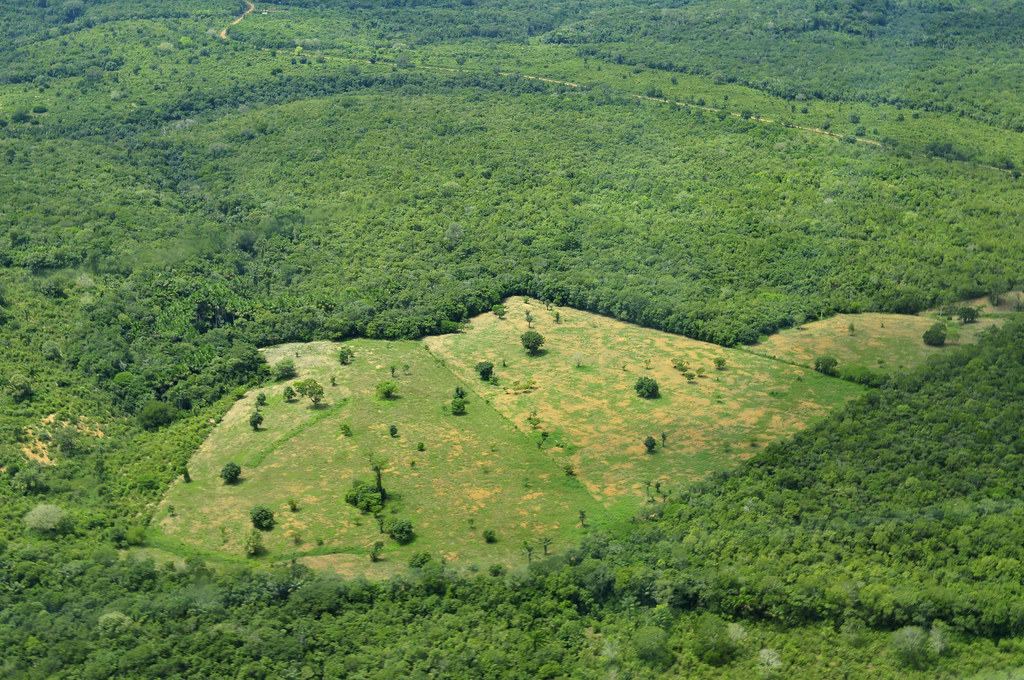Overselling EU trade deals: new study uncovers failures of sustainability impact assessments
Greenpeace | 11 May 2022
Overselling EU trade deals: new study uncovers failures of sustainability impact assessments
Brussels/Berlin, 11 May 2022 – The European Commission uses flawed and tardy sustainability impact assessments (SIAs) as a fig leaf for environmentally, socially and economically damaging EU trade agreements, according to a new study by Greenpeace Germany and the French Veblen Institute for Economic Reforms. As a result, SIAs fail to provide decision-makers with timely, reliable and objective guidance.
The study, which examines all 31 completed SIAs since their introduction 20 years ago, finds that they are most commonly plagued by delays, administrative mishandling, an ideological pro-trade bias, a flawed methodology, and a lack of meaningful public participation.
Greenpeace trade campaigner Lis Cunha said: “The Commission uses sustainability impact assessments as a mere box-ticking exercise for trade deals that in fact fail to deliver on their economic goals, while promoting a trade model based on the exploitation of workers and the destruction of nature. The Commission must revise its practices – EU trade deals need more than a fig leaf if they’re going to stop feeding social injustice and the climate and nature crisis.”
According to the study, SIAs are routinely published so late in the negotiating process of a free trade agreement that none of the EU institutions involved has time to apply its recommendations. The Commission’s trade services also regularly completely disregard SIA findings aimed at mitigating any negative impacts of trade agreements.
Last year, the European Ombudsman accused the Commission of maladministration for failing to complete an SIA before the end of EU-Mercosur trade negotiations, with the European Parliament reiterating the need in February 2022 for timely and thorough assessments well before the completion of trade negotiations.
The study also found that civil society organisations or trade unions are also rarely allowed to meaningfully participate in the development of SIAs, with their concerns and amendments regularly ignored.
A qualitative assessment of SIAs also reveals a general bias in favour of the benefits of trade liberalisation, which downplays the impact of weakening regulations, notably on health and environmental protection, and the socio-economic impact on workers in the EU and other countries. Using several concrete examples, the study demonstrates that SIAs analysis of environmental, climate and human rights impacts is an afterthought and consistently superficial.
The European Commission carries out SIAs in order to assess the potential economic, social and environmental impact of future trade agreements. According to the Commission, these should be conducted hand-in-hand with the negotiations, in order to “feed into and steer [them]”, ultimately shaping the final text of EU free trade agreements.
Examples of shortcomings in the assessment of environmental and social impacts of EU trade agreements
Regarding emissions linked to international transport:
Most SIAs acknowledge that an increase in trade could lead to an increase in CO2 emissions and pollution from international transport, but this risk is not mirrored in SIA numbers. More or less one third of trade-related emissions are estimated to come from international transport. Out of all emissions linked to EU exports, 32% are caused by international transport. This figure is 29% for imports. Cargo-ships alone make up 3% of global emissions. This blind spot of SIAs is all the more problematic since emissions from international transport are poorly regulated: fuels are barely taxed, and sea and air transport largely escape carbon taxes or other schemes, such as the EU Emissions Trading System. More details and footnotes on page 22 of the study.
Regarding environmental impacts linked to coal:
The SIA for the EU-Canada trade greement (CETA) explains that the environmental impact of CETA related to coal should be minimal, because “as Europe works to meet its climate change targets of 20% reduction in […] emissions by 2020 compared to 1990 levels, they will rely less on coal as a power source”. Instead of assessing the impact of the agreement on the likelihood that countries effectively fulfil their climate targets, it takes for granted that they will reach those climate targets to conclude that the environmental impact will be limited. More details and footnotes on page 34 of the study.
Regarding biodiversity:
The SIA for an EU-Mercosur trade agreement blatantly fails to assess impacts on biodiversity. Although the assessment indicates that its environmental analysis will cover ecosystems and biodiversity, no such section exists. The SIA merely lists multilateral environmental agreements the EU and Mercosur are part of, which include provisions on biodiversity. Environmental organisations in Europe and Mercosur countries warn that the EU-Mercosur agreement could have a major impact on biodiversity, given the fragile ecosystems present in South America, and given the focus of the agreement on agricultural products prone to affect biodiversity. More details and footnotes on page 24 of the study.
Regarding indigenous people’s rights:
The EU-Mercosur SIA states that “foreign investment in rural areas” might “provide important benefits to rural indigenous populations, such as employment, capacity building, and physical infrastructure including roads, and increased access to water supplies”, as well as an “increased bargaining power for indigenous communities vis-à-vis multinational corporations, and thus greater capacity to implement the demand side of human rights.” “In some instances, trade and investments have provided indigenous peoples with new employment opportunities and income gains with further intangible positive impacts such as on indigenous women’s confidence and bargaining power”, the SIA continues. However, these statement are not backed up by thorough analysis or data. More details and footnotes on page 26 of the study.
Contacts:
Lis Cunha – Greenpeace trade campaigner: +32 (0)489 032518, lis.cunha@greenpeace.org
Greenpeace EU press desk: +32 (0)2 274 1911, pressdesk.eu@greenpeace.org






